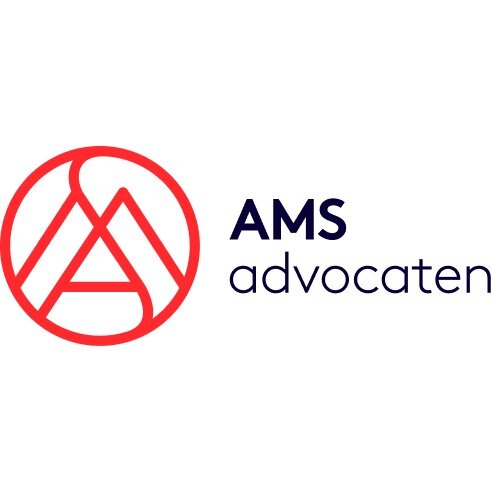Best ESG Advisory & Compliance Lawyers in Amsterdam
Share your needs with us, get contacted by law firms.
Free. Takes 2 min.
List of the best lawyers in Amsterdam, Netherlands
About ESG Advisory & Compliance Law in Amsterdam, Netherlands
Environmental, Social, and Governance (ESG) Advisory & Compliance law refers to the legal frameworks, regulations, and advisory services aimed at ensuring that organizations operate in a responsible and sustainable manner. In Amsterdam, ESG has become increasingly relevant with companies facing growing expectations from regulators, investors, and the public to disclose and improve their impact on environmental stewardship, social responsibility, and corporate governance. Legal professionals in this field help businesses understand and adhere to both international and Dutch ESG standards, navigate compliance challenges, and implement effective ESG strategies in their operations.
Why You May Need a Lawyer
There are various situations where seeking legal help with ESG Advisory & Compliance becomes essential in Amsterdam. Businesses may require assistance interpreting new or changing regulations, implementing ESG due diligence processes, or managing risks associated with non-compliance. Companies considering mergers, acquisitions, or entering new markets may need legal guidance to ensure their operations align with ESG requirements. Legal experts also assist organizations subject to investor scrutiny or regulatory investigations and support them in preparing non-financial disclosures, such as sustainability and human rights reports. Engaging a lawyer can also help prevent penalties, reputational harm, or operational disruptions linked to ESG compliance failures.
Local Laws Overview
Amsterdam, as the capital of the Netherlands and a key European business hub, operates under a mix of Dutch national law and European Union regulations regarding ESG matters. The Dutch Corporate Governance Code and laws on environmental protection, employee wellbeing, and anti-corruption create the foundation of ESG requirements. The Netherlands is also proactive in implementing the EU Corporate Sustainability Reporting Directive (CSRD), the EU Taxonomy, and the Sustainable Finance Disclosure Regulation (SFDR). Additionally, Dutch legislation, such as the Child Labour Due Diligence Law and the Climate Agreement, imposes specific ESG obligations on businesses. Local authorities in Amsterdam may have their own sustainability policies for companies operating in the region, making legal guidance critical to understand full compliance obligations.
Frequently Asked Questions
What does ESG compliance mean for my business in Amsterdam?
ESG compliance means adhering to legal and voluntary standards regarding environmental protection, social responsibility, and transparent corporate governance in line with Dutch and EU regulations and market expectations.
Who needs to comply with ESG laws in the Netherlands?
Generally, medium to large companies, financial institutions, and businesses operating internationally or listed on stock exchanges must comply, but requirements increasingly affect smaller firms, supply chains, and startups.
What are the consequences of failing to comply with ESG regulations?
Failure to comply can lead to fines, regulatory investigations, loss of contracts, reputational damage, and restricted access to capital or investment opportunities.
What main regulations impact ESG compliance in Amsterdam?
Key regulations include the Dutch Corporate Governance Code, EU CSRD, SFDR, the EU Taxonomy, environmental laws, the Child Labour Due Diligence Law, and local sustainability bylaws.
What is the role of Dutch authorities in ESG enforcement?
Dutch authorities oversee compliance, conduct inspections, investigate non-compliance, and can impose sanctions or corrective actions on businesses operating in Amsterdam.
Do Amsterdam businesses have specific requirements for environmental reporting?
Yes, larger businesses and those in regulated industries must provide detailed sustainability and environmental impact reports, often aligned with EU regulations and local standards.
How does ESG law affect foreign companies operating in Amsterdam?
Foreign companies operating in Amsterdam are subject to the same ESG laws as Dutch companies and must often comply with both home and host country regulations.
What should my company do to start an ESG compliance program?
Begin with an ESG risk assessment, establish internal policies and codes of conduct, set up data gathering and reporting mechanisms, provide staff training, and regularly review legal developments.
Does ESG compliance impact investment decisions in Amsterdam?
Yes, many investors now require evidence of strong ESG performance from Dutch and Amsterdam-based companies before committing funds or long-term partnerships.
Can a lawyer help with both ESG compliance and litigation matters?
Absolutely. Lawyers provide advisory services on compliance, assist with regulatory filings, and represent businesses in legal disputes or regulatory investigations related to ESG matters.
Additional Resources
- Netherlands Enterprise Agency (RVO) offers guidance on sustainability laws and support programs. - The Dutch Authority for the Financial Markets (AFM) provides information on financial and ESG reporting standards. - The Netherlands Bar Association (Nederlandse Orde van Advocaten) lists qualified legal professionals specializing in ESG and compliance. - The Dutch Ministry of Economic Affairs and Climate Policy issues updates on environmental and corporate sustainability legislation. - Local chambers of commerce and industry groups host events and practical workshops on ESG awareness and compliance.
Next Steps
If you believe your business needs legal support on ESG Advisory & Compliance matters in Amsterdam, start by assessing your current compliance status and identifying any immediate legal risks. Research and select a lawyer or firm with proven expertise in Dutch and European ESG law. Prepare any relevant corporate documents, registrations, and reports for review. Arrange a consultation to discuss specific compliance needs, receive advice on regulatory changes, and develop an action plan to meet all legal obligations and voluntary ESG goals within your organization.
Lawzana helps you find the best lawyers and law firms in Amsterdam through a curated and pre-screened list of qualified legal professionals. Our platform offers rankings and detailed profiles of attorneys and law firms, allowing you to compare based on practice areas, including ESG Advisory & Compliance, experience, and client feedback.
Each profile includes a description of the firm's areas of practice, client reviews, team members and partners, year of establishment, spoken languages, office locations, contact information, social media presence, and any published articles or resources. Most firms on our platform speak English and are experienced in both local and international legal matters.
Get a quote from top-rated law firms in Amsterdam, Netherlands — quickly, securely, and without unnecessary hassle.
Disclaimer:
The information provided on this page is for general informational purposes only and does not constitute legal advice. While we strive to ensure the accuracy and relevance of the content, legal information may change over time, and interpretations of the law can vary. You should always consult with a qualified legal professional for advice specific to your situation.
We disclaim all liability for actions taken or not taken based on the content of this page. If you believe any information is incorrect or outdated, please contact us, and we will review and update it where appropriate.












